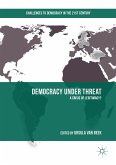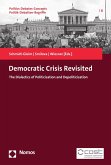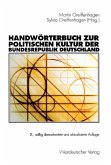Values - elites and ordinary people This book reveals the diverse worlds of history, civic culture and values of South Africa, South Korea, Chile, Poland, Turkey, Germany and Sweden. It explores the similarities and contrasts between the values of the elites and the ordinary people. Written from various disciplinary perspectives and offering both empirical evidence and insiders' knowledge, this book is bound to interest a wide variety of readers. The study on which the book reports was in the main based on analyses of value orientations of the parliamentary and media elites and those of the ordinary citizens. The data for the elites were obtained from surveys conducted for the purposes of the study; the data for the general population were drawn from the latest World Values Surveys. The volume is divided into two parts. The first part, entitled Theory and history, considers the quality of democracy in the context of the historical and cultural heritage of the seven countries, their civic culture and notions of citizenship, and their constitutions as foundations of the democratic political order. The second part of the book, entitled Theory and empiricism, assesses the quality of democracy by means of comparative analyses of the convergence and divergence in value orientations of the elites and the masses, both within each case and across all the seven cases.
Dieser Download kann aus rechtlichen Gründen nur mit Rechnungsadresse in A, B, BG, CY, CZ, D, DK, EW, E, FIN, F, GR, H, IRL, I, LT, L, LR, M, NL, PL, P, R, S, SLO, SK ausgeliefert werden.









